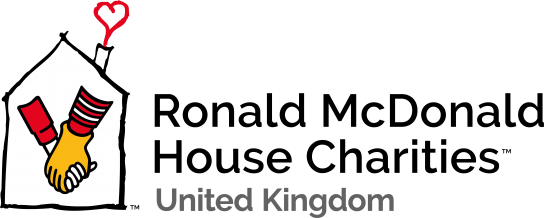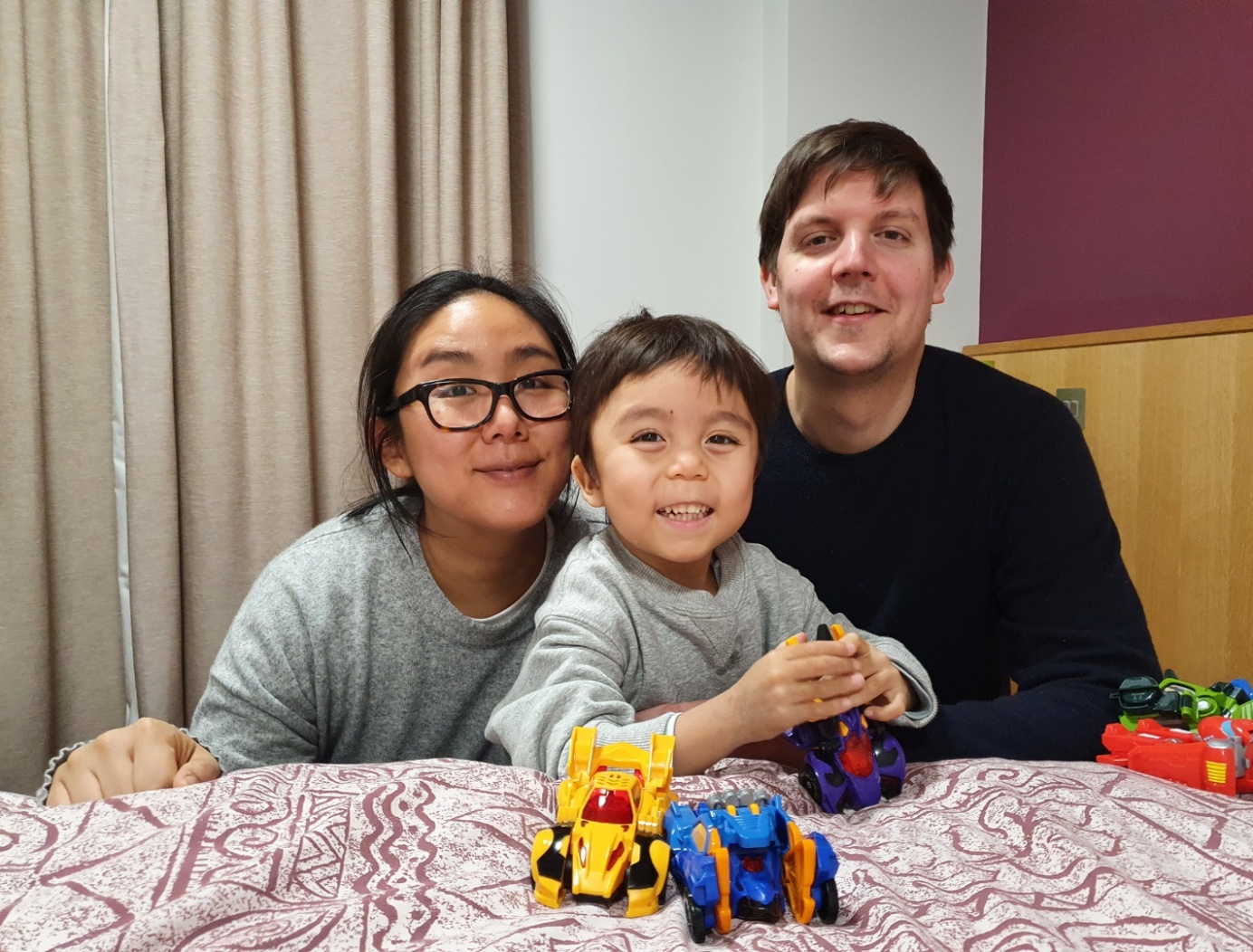
We call ourselves ‘operation buddies’: Noah's story
June 21, 2022
Noah, from Reading in Berkshire, was just four weeks old when he was diagnosed with congenital nephrotic syndrome, a condition causing the kidneys to leak large amounts of protein into the urine. The first child of his parents Jessie and Thomas, Noah spent the first six months of his life in hospital, during which time Ronald McDonald House Southampton provided free ‘home from home’ accommodation for his family.
In November 2021 baby Remy arrived, making Noah a proud big brother and just three months later, after several years of infusions and dialysis, Noah finally received a kidney transplant. Dad Thomas was his donor and they became ‘operation buddies’. Noah is now back at nursery and looking forward to starting school in September.
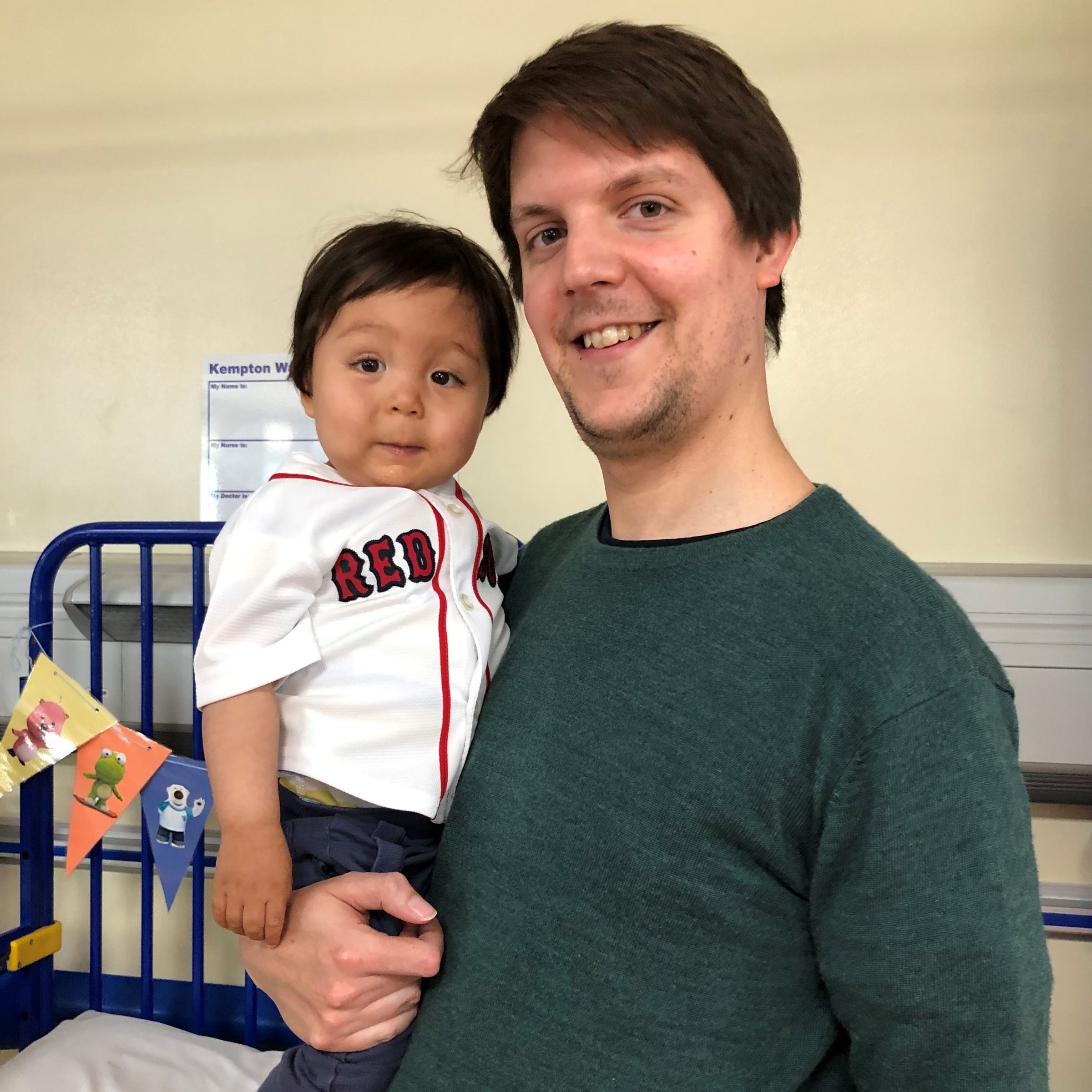
Guest blogger: Thomas
My wife Jessie had a normal pregnancy with Noah and a straightforward birth.
We took Noah home, completely smitten with our newborn, but it wasn’t long before we noticed that his stomach looked distended, so we took him to the doctor, who said it was probably just constipation. Shortly after that, we realised his face was also swelling up, which resulted in another trip to the GP, but we were told there was no cause for concern. It wasn’t until a few days later when we were changing his nappy and saw he had a swollen leg that we were finally sent to A&E at Royal Berkshire Hospital in Reading.
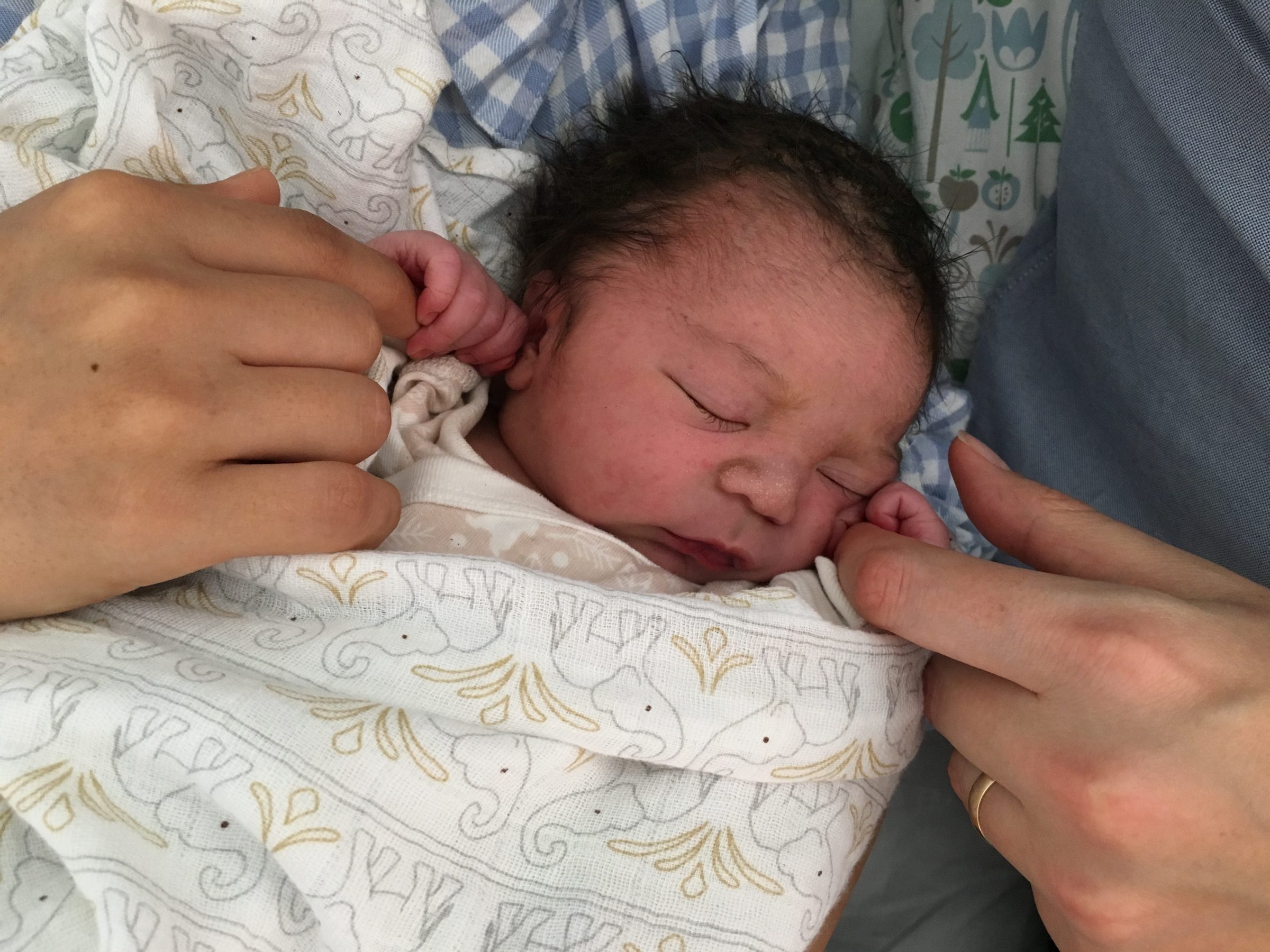
In hospital, doctors told us it was either a heart, liver, or kidney problem. They fitted him with a nasogastric tube (NG tube), which was really distressing. We couldn’t believe it. Other than the swelling, he’d been a happy baby; feeding well and sleeping for normal amounts of time. We stayed in the Royal Berkshire overnight, waiting to be transferred to a specialist unit.
The next day, we were told we were being transferred to the Southampton Children’s Hospital. Jessie and Noah were taken in an ambulance, and I followed in the car. We hadn’t been admitted for long, when a consultant told us Noah had congenital nephrotic syndrome. I’d already done my own research online and suspected he had nephrotic syndrome. I knew that the small number of children who inherit this particular condition usually do less well.
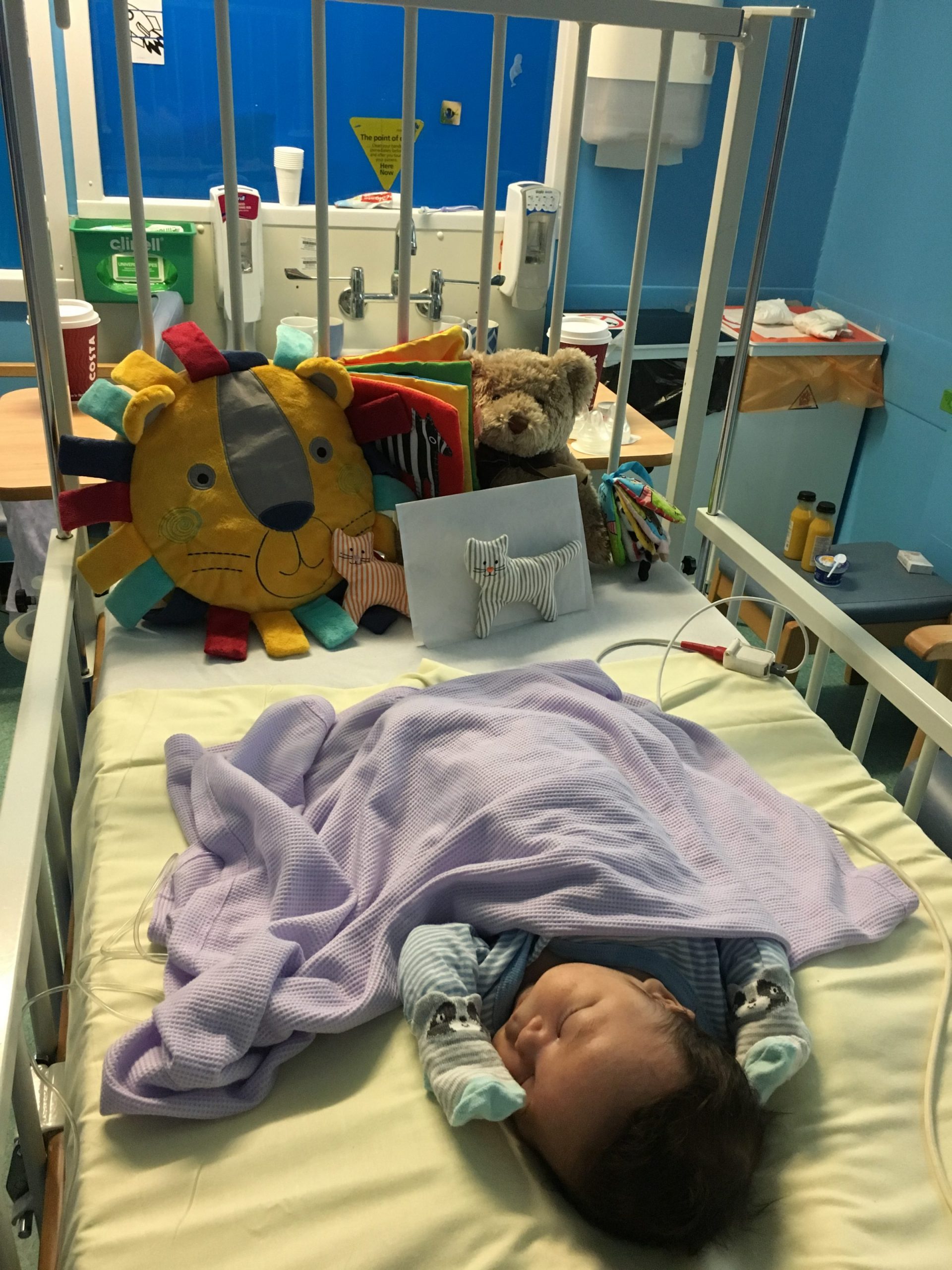
The good news was that we were in the right place; Noah had a highly specialised team looking after him and amazingly, we were offered a place to stay very close to his ward. When a nurse told us she’d referred us to the Ronald McDonald House, we were so relieved. We were shown around the House by a lovely chap called Billy and I burst into tears when I saw it. I couldn’t believe there was a facility like it.
The en-suite bedrooms were big enough for our parents to come and stay to help too. Having that as a base was remarkable and it became a refuge for us after a long day in the hospital. It felt worlds apart from the parents’ room on the ward, which was windowless with just a tiny fridge. We also got to know a few other parents. It was sometimes hard to hear their stories but also comforting that we weren’t alone.
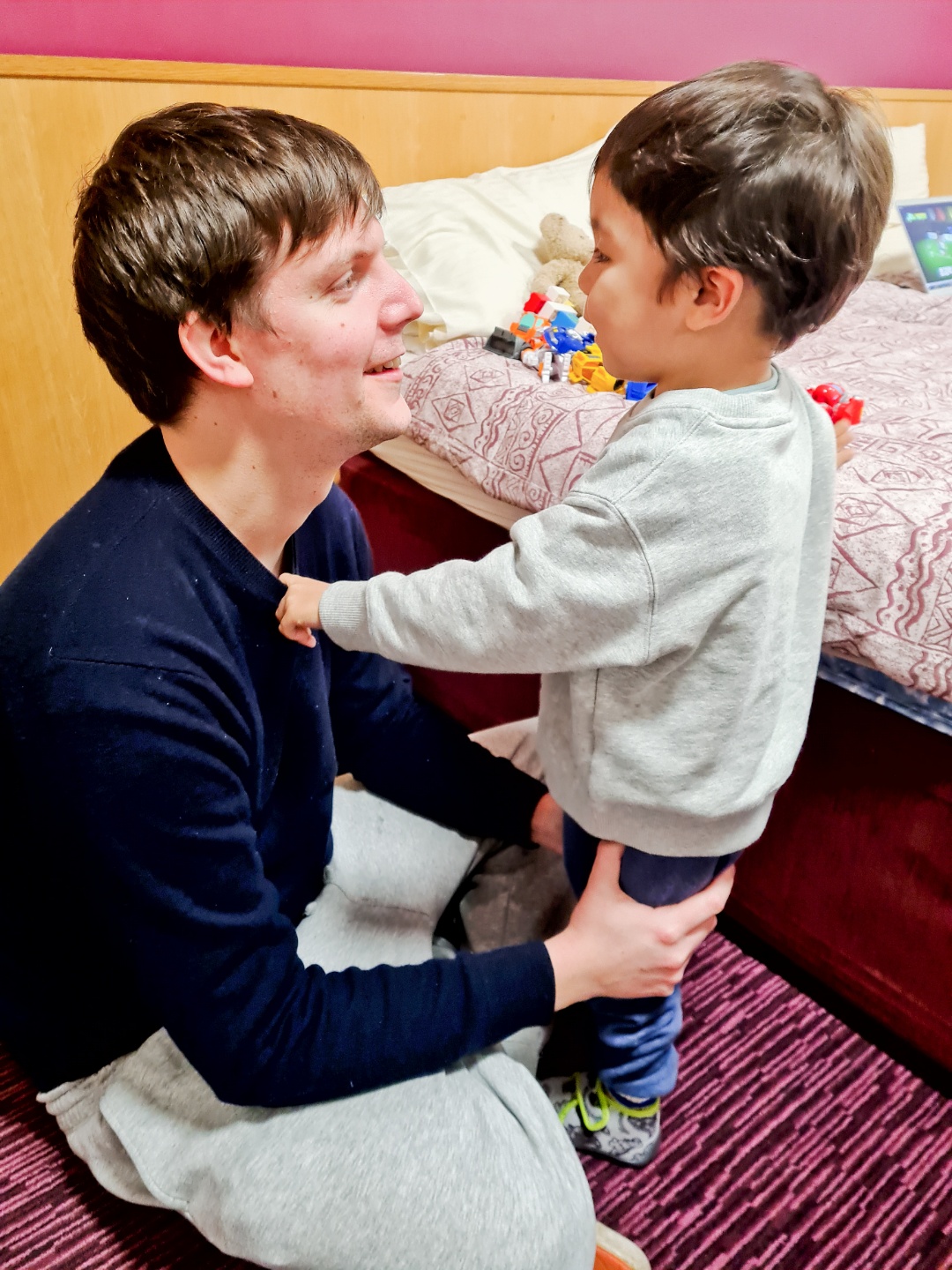
He would be hooked up to machines for hours on end and when he wasn’t receiving his infusions, he would be having observations every 30 minutes, which meant none of us were getting much sleep at all. It was incredibly intense.
Dad, Thomas
Meanwhile, the plan of action in terms of Noah’s treatment was to manage his symptoms, rather than cure the problem. Noah’s oedema (swelling caused by his kidney problems) meant that he had to be given a protein called albumin.
He would be hooked up to machines for hours on end and have regular observations (every 30 minutes), which meant none of us were getting much sleep at all. It was incredibly intense.
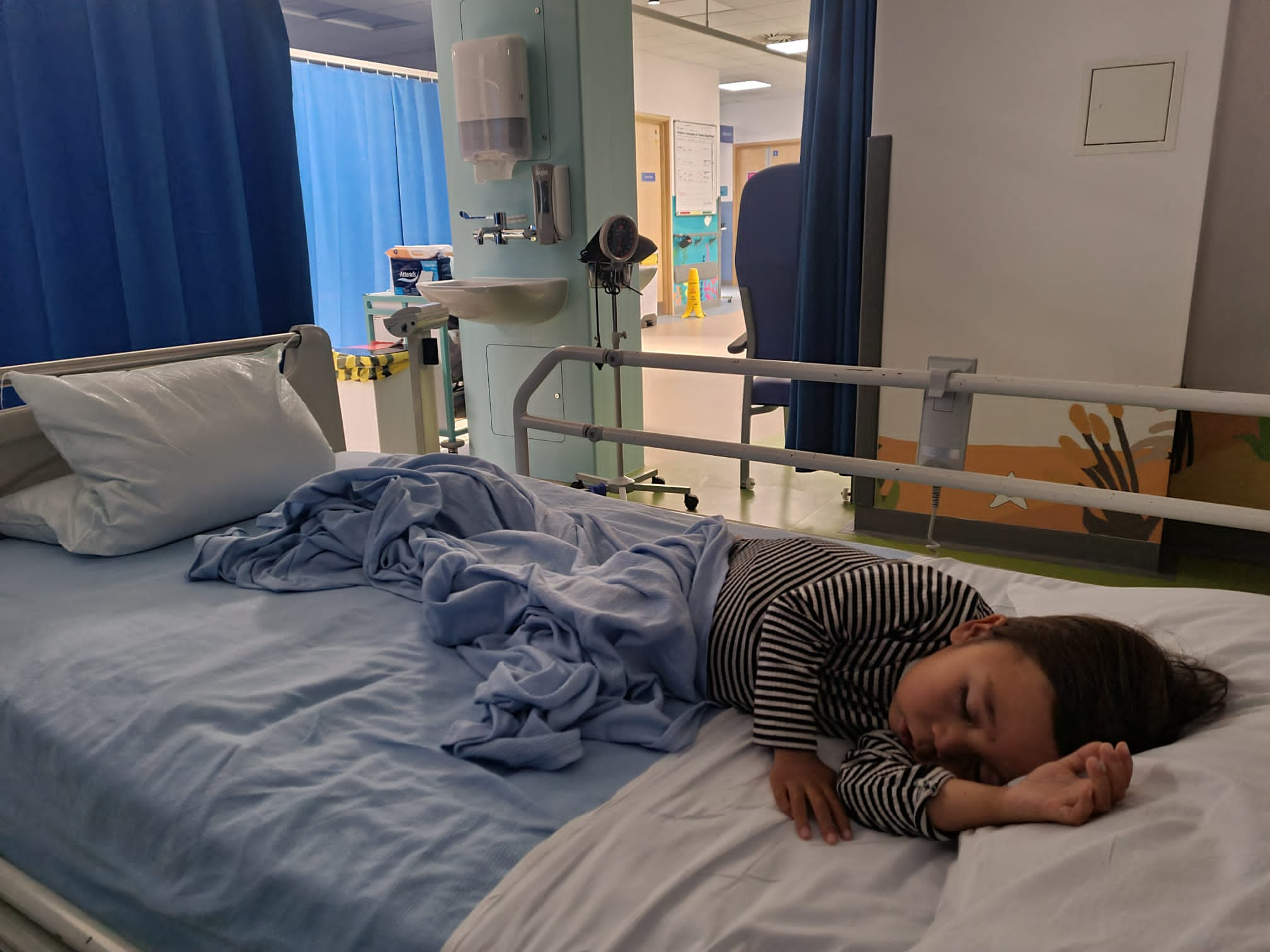
Unfortunately, the infusions weren’t having the desired effect and in January 2018, Noah had an operation to remove one of his kidneys. It was a huge operation for such a small baby to go through, but it resulted in us gaining some more control of his symptoms and after six long months in hospital, in April 2018, we were finally discharged. Noah’s care plan continued with two days a week in hospital in Reading and one day a week in Southampton.
Gradually, we reduced the number of days a week spent in hospital and in July 2021 we began the next stage of his treatment; peritoneal dialysis. This works by putting fluid into the lining of the abdomen to draw out waste products from the blood passing through vessels lining the inside of the stomach.
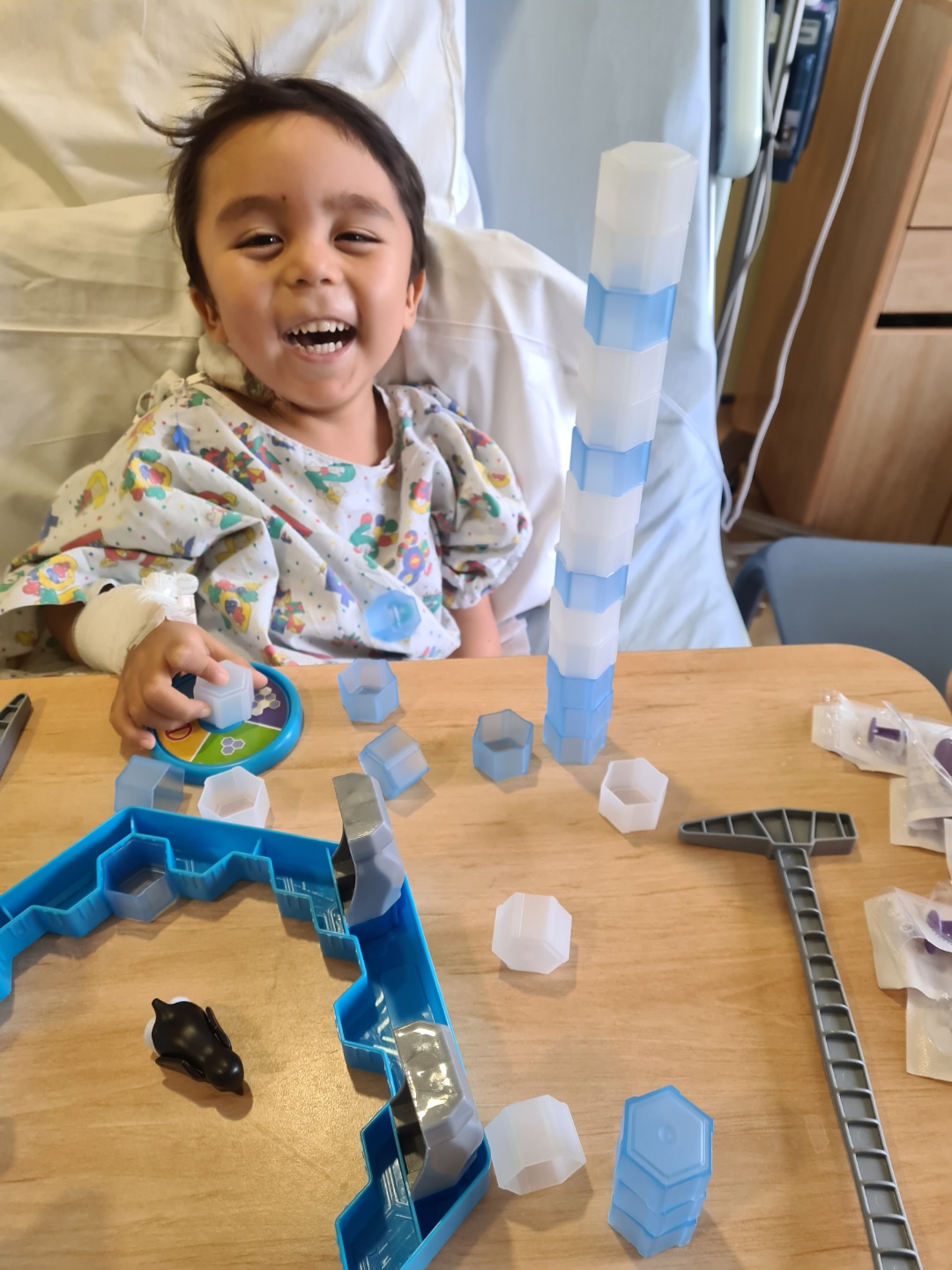
Thankfully, we were trained to administer the treatment at home. It was a lot of work, but it did us good to be at home and settled for a while. We were initially told he’d need the peritoneal dialysis for six weeks, in preparation for a kidney transplant, but due to delays caused by the Covid-19 pandemic, it was more like six months.
To decide who would donate a kidney to Noah, we had to undergo a few tests. Jessie and I are both the same blood group as him, which was a good start, but I scored slightly better on tissue matching. Jessie was also advised against doing it if she planned to be pregnant again. We were keen to have another baby and didn’t want too big an age gap between Noah and his younger sibling.
We also had logistical considerations around pay and sick leave, which contributed to our decision. Ultimately, it was something I wanted to do, of course, but from the early stages of Noah’s diagnosis, it felt like it was hanging over me and it was difficult not knowing exactly when it would happen.
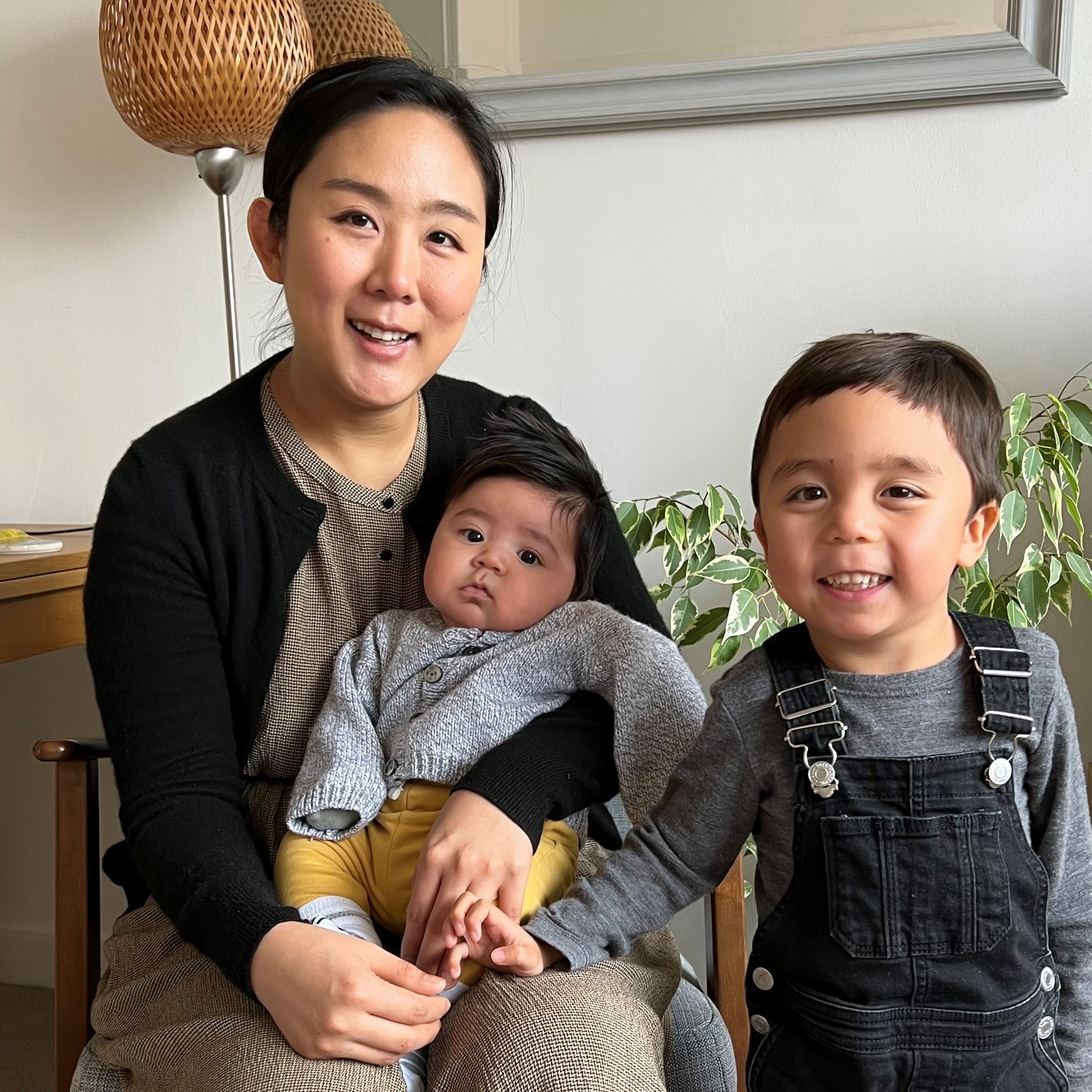
On 12 November 2021, Jessie and I were delighted to welcome baby Remy into the family; a much-wanted sibling for Noah and the perfect addition to our family. We were warned by medics that having a baby prior to Noah’s transplant was a bad idea but we were confident it was the right time and the right decision and luckily, Remy just slotted in, bringing so much joy.
Three months later, on 8 February 2022, it was transplant day. I went down early for my operation at Guy’s Hospital in central London and a few hours later, my kidney was couriered a couple of miles west, to Evelina London Children’s Hospital, where Noah was prepped for theatre, ready to receive his transplant.
For now, he seems to enjoy the fact that we both have similar scars – we call ourselves ‘operation buddies’.
Dad, Thomas
Although he was aware he was going in for another operation and that his daddy was having surgery on the same day, we didn’t explain to him that he was receiving an organ from me. It felt like too big a concept for a four-year-old to take on board and I never wanted him to feel like he was in debt to me. We talked to him about it in terms of all the things that would change for him post-op.
He’d no longer have to be hooked up to a machine, there’d be no more limits on his fluid intake, and he’d be able to eat whatever he liked. Obviously, if he asks in the future where his new kidney came from, we’ll tell him.
For now, he seems to enjoy the fact that we both have similar scars – we call ourselves ‘operation buddies’.
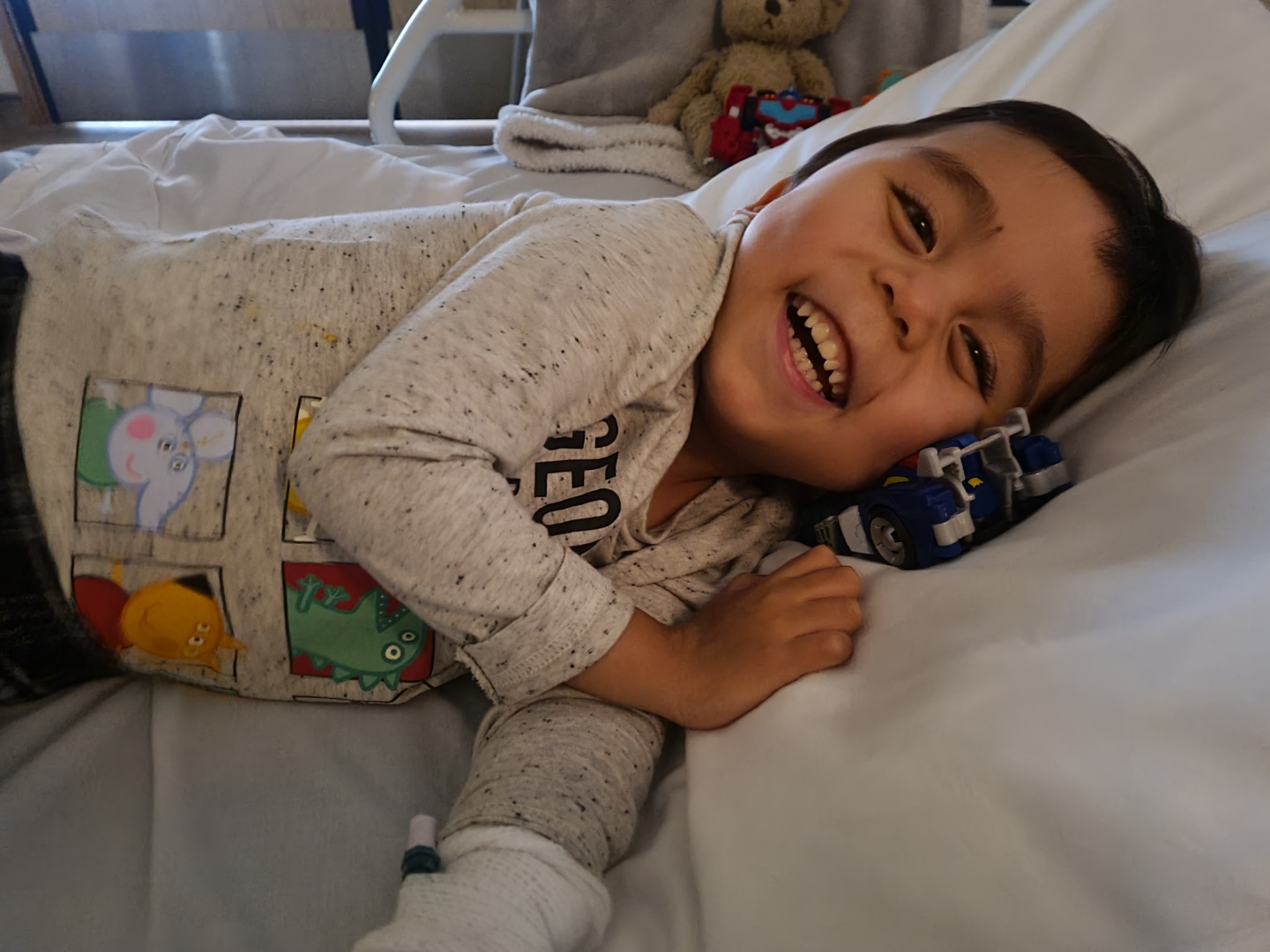
Everything has gone as well as we could’ve hoped for. We’ve been incredibly fortunate. After 10 weeks or so, I was well enough to return to work. Noah is back at nursery and all being well, he’ll be starting school in September. He’s growing into a very bright young boy, and we couldn’t be more proud of him.
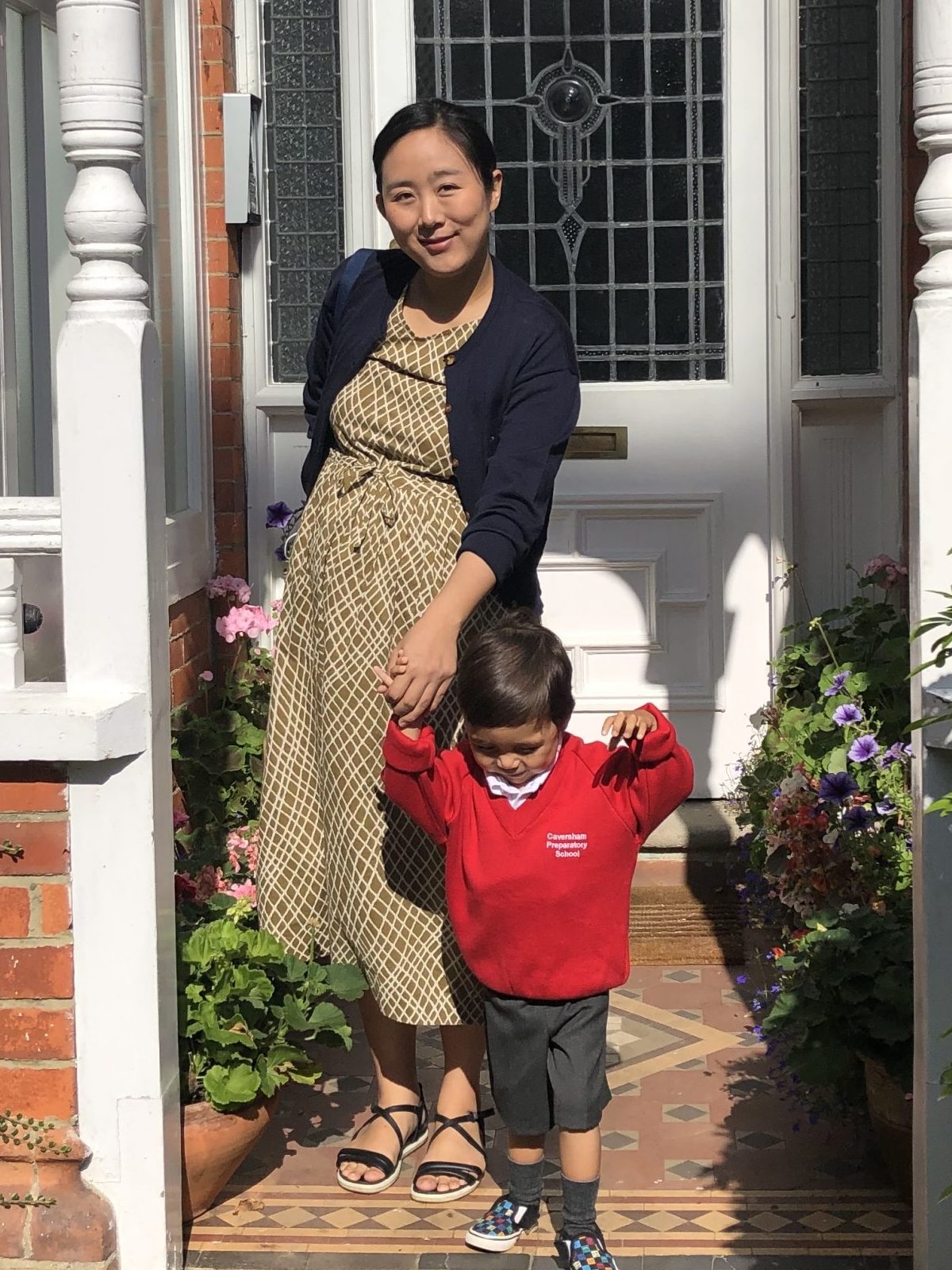
We never forget the wonderful Ronald McDonald House in Southampton, which provided us with the ‘home from home’ we so desperately needed during those dark first few months of Noah’s life.
Dad, Thomas
After everything we’ve been through, we never forget the wonderful Ronald McDonald House in Southampton, which provided us with the ‘home from home’ we so desperately needed during those dark first few months of Noah’s life. We honestly don’t know what we would’ve done without it. We think we’ve stayed in at least 10 different rooms in the House, as we’ve gone back for shorter stays on-and-off over the years. Even when we were at the hospital as day patients, we’d go back and say ‘hello’ to the staff.
They have always been friendly, understanding, and considerate. No money could ever repay the help that we have received. The House allowed us to stay as a family when we never thought anything even close to normal would be possible.
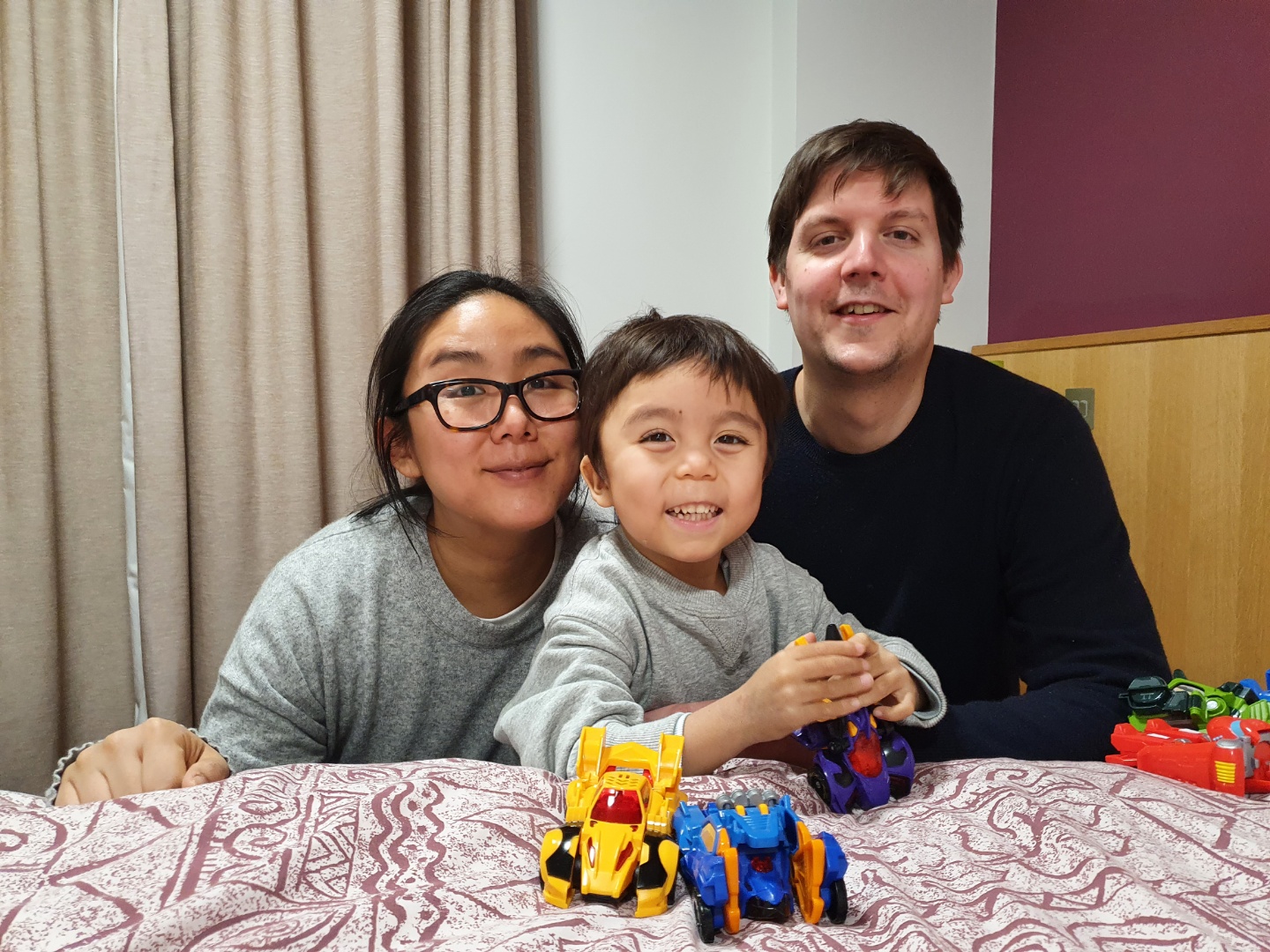
Meanwhile, we live in hope that Noah will continue to thrive although the statistics tell us that he is likely to need another kidney transplant at some point in the future and he’ll be on medication for the rest of his life.
For now, we’re grateful that he’s doing so well and for all the people who’ve supported him and continue to support him on his journey.
Help us provide free home away from home accommodation to support families with children in hospital with a donation.
